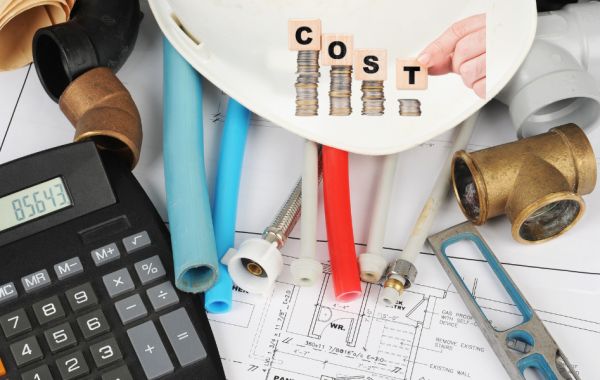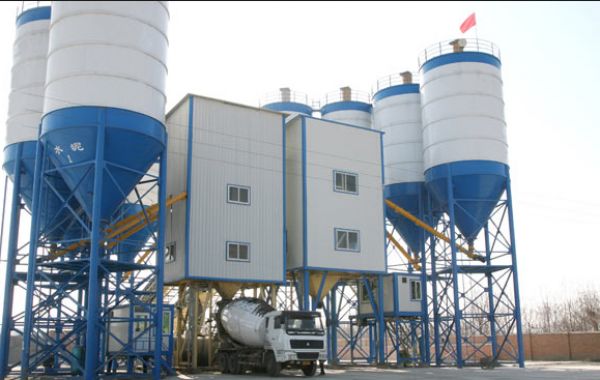Homeowners who are dealing with problems like leaks or blockages must understand plumbing expenditures. The average hourly fee for a plumber is between $45 to $200 that depending on the area, type of work and expertise. This information aids in creating an efficient emergency and repair budget.
Who Are Plumbers?
Plumbers are highly experienced workers who specialize in the installing, maintaining and repairing water, sewage and drainage systems in residential, commercial and industrial facilities. Their main focus is on pipe systems and making sure that waste is properly removed and provided clean water in an effective manner.

Plumber Duties
- Installing Pipes and Fixtures: Plumbers install and connect pipes, faucets, bathtubs, toilets, sinks and other fixtures used for water distribution and sanitation.
- Maintenance and Repair: They replace or repair malfunctioning fixtures and detect and clear blockages, leaks and broken pipelines. This covers both routine maintenance (like cleaning the drains) and emergency repairs (like fixing busted pipes).
- Inspecting and Diagnosing: Plumbers assess plumbing systems to detect issues such as blockages or outdated components by using tools like cameras, pressure gauges and testing equipment.
- Reading Blueprints: They work from building blueprints or plans to understand where plumbing systems should be installed or repaired.
- Compliance with Codes: Plumbers ensure their work complies with local, state and national plumbing codes, ensuring safety and efficiency.
Types of Plumbers
- Residential Plumbers: Focus on houses, apartment and other living areas. They deal with problems including water heater installation, clogged drains and leaky faucets.
- Commercial Plumbers: Work on increasingly sizable, intricate systems in structures such as schools, malls and workplaces. They frequently work with fixtures and pipes of an industrial grade.
- Service and Repair Plumbers: Specialize in diagnosing and fixing existing plumbing issues from minor leaks to major repairs.
- Construction Plumbers: Install new plumbing systems in buildings under construction.
Who Needs a Plumber?
Homeowners, tenants, businesses and property managers all require plumbers. Plumbers are needed to install fixtures, maintain water heaters and fix leaks, clogged drains and damaged pipes. Plumbers are needed for advanced plumbing systems in businesses and industrial buildings, and property managers depend on them for routine maintenance. Plumbers are also required for new construction to install water, sewage and drainage systems, to make sure everything follows building requirements.

Average Hourly Rates for Plumbers
Plumbers' hourly rates might change depending on the job's complexity, location and level of experience. Most plumbers in the United States charge between $50 and $150 per hour with a few exceptions for specialist work or emergency services.
- Apprentice Plumbers: If you're working with an apprentice or a less experienced plumber, you can expect to pay on the lower end of the spectrum. Their rates usually range from $30 to $50 per hour.
- Journeyman Plumbers: These plumbers have more experience and training. Their rates typically fall between $60 and $120 per hour. Journeyman plumbers are qualified to handle most common plumbing tasks, from routine repairs to complex installations.
- Master Plumbers: As the most experienced plumbers, master plumbers can command the highest rates. Their fees range from $75 to $150 per hour or more that depending on the nature of the work. Master plumbers are usually called upon for large-scale projects or specialized services that require expert-level skills.
Factors That Affect Plumbers Charge Per Hour
Several factors influence how much a plumber will charge per hour. Below are some of the key elements that can impact the final cost:
1. Location
The cost of plumbing might differ widely based on your location. Plumbers typically charge more in larger cities or in locations where the cost of living is greater. Rates in rural regions may be closer to $50 to $80 per hour but they can go as high as $150 to $200 per hour in cities like New York City or San Francisco.
2. Job Complexity
The hourly charge is also heavily influenced by the intricacy of the plumbing problem. A plumber at the lower end of the fee spectrum might simply need an hour or two to handle a small problem like a leaky faucet. Higher levels of skill and several hours of work may be needed for more complex tasks that including fixing a sewage line or replacing a water heater, which might result in higher hourly prices.
3. Emergency Services
Emergency services from plumbers are sometimes more expensive, especially when you require assistance on the weekends, on holidays or after usual work hours. The hourly rate for emergency plumbing services might vary from $100 to $300, based upon the urgency and complexity of the issue that needs fixing.
4. Specialization
Some plumbing tasks require specific expertise or certifications such as dealing with gas lines or highly intricate water systems. Specialized plumbers could charge extra per hour in certain situations. For example, because to the additional dangers involved, working on gas lines usually attracts a premium rate, usually ranging from $100 to $200 per hour.
5. Seasonality
Seasonal variations in plumbing demand may have an impact on hourly rates. The need for plumbers tends to rise in the winter months when pipes are more prone to freeze, which might result in greater prices. On the other hand, during periods of less demand, charges could be more reasonable.
Additional Costs Beyond Hourly Rates
There are many other costs that might be added to the bill, even if the hourly rate plays a big part in the overall cost. These may consist of:
- Service Fees: Some plumbers charge a flat fee just for showing up. This fee often called a "service call fee" or "trip charge," can range from $50 to $100 and is typically added to the hourly rate.
- Materials: The cost of materials is generally not included in the hourly rate. You will need to pay for any parts or materials used during the repair or installation, such as pipes, fittings, or valves.
- Permits: Larger projects could need a permit such as installing new plumbing systems or doing major maintenance. The area and kind of activity might have an impact on the cost of permits. A permit should cost between $50 and $500.
- Flat-Rate vs. Hourly Charges: Some plumbers offer flat-rate pricing for specific services instead of hourly rates. Flat-rate pricing can be beneficial for common jobs like installing a toilet, unclogging a drain, or repairing a water heater, as it gives you a clear understanding of the total cost upfront.

Ways to Save on Plumbing Costs
Plumbing repairs can be costly but there are a few ways you can cut costs:
- Routine Maintenance: One of the best ways to avoid costly plumbing repairs is to invest in regular maintenance. By catching small issues before they become big problems, you can save both time and money.
- DIY for Small Jobs: You might be able to do minor things yourself like unclogging a drain or changing a faucet. Just make sure you have the right equipment and are comfortable doing the task before making any repairs.
- Plan Ahead: If possible, try to schedule non-emergency repairs during regular business hours to avoid higher rates. Also consider bundling multiple small jobs together to minimize service fees.
Frequently Asked Questions (FAQs):
1. What is the average hourly rate for a plumber?
On average, plumbers charge between $50 to $150 per hour. Rates may vary depending on the complexity of the job, location, and the plumber’s experience.
2. What factors affect a plumber’s hourly rate?
Several factors influence the rate, including the plumber’s experience, location, the type of job (e.g., emergency vs. non-emergency), and whether the work requires special tools or materials.
3. Do plumbers charge differently for emergency services?
Yes, emergency plumbing services typically come with higher fees, often ranging from $100 to $250 per hour, due to the immediate response required.
4. How much does a plumber charge for a small repair job?
For small repairs, plumbers might charge a flat rate or hourly fee. Expect to pay around $75 to $200 for minor issues like fixing a leaky faucet or unclogging a drain.
5. Is there a minimum service charge for hiring a plumber?
Yes, many plumbers have a minimum service fee ranging from $50 to $100, even for small jobs, to cover travel and time expenses.
Conclusion
Depending on the skill level, location, and difficulty of the task, hourly charges for plumbing services can vary greatly and usually from $50 to $150 or more. Careful preparation and investigation will help you locate a licensed plumber at a reasonable cost, even though emergency or specialty services may drive costs even higher.
Knowing what most plumbers charge per hour and how to handle additional expenses can help you make educated decisions and ensure that your home's plumbing system stays in excellent condition without breaking the bank, either you're dealing with a small leak or a huge plumbing crisis.








